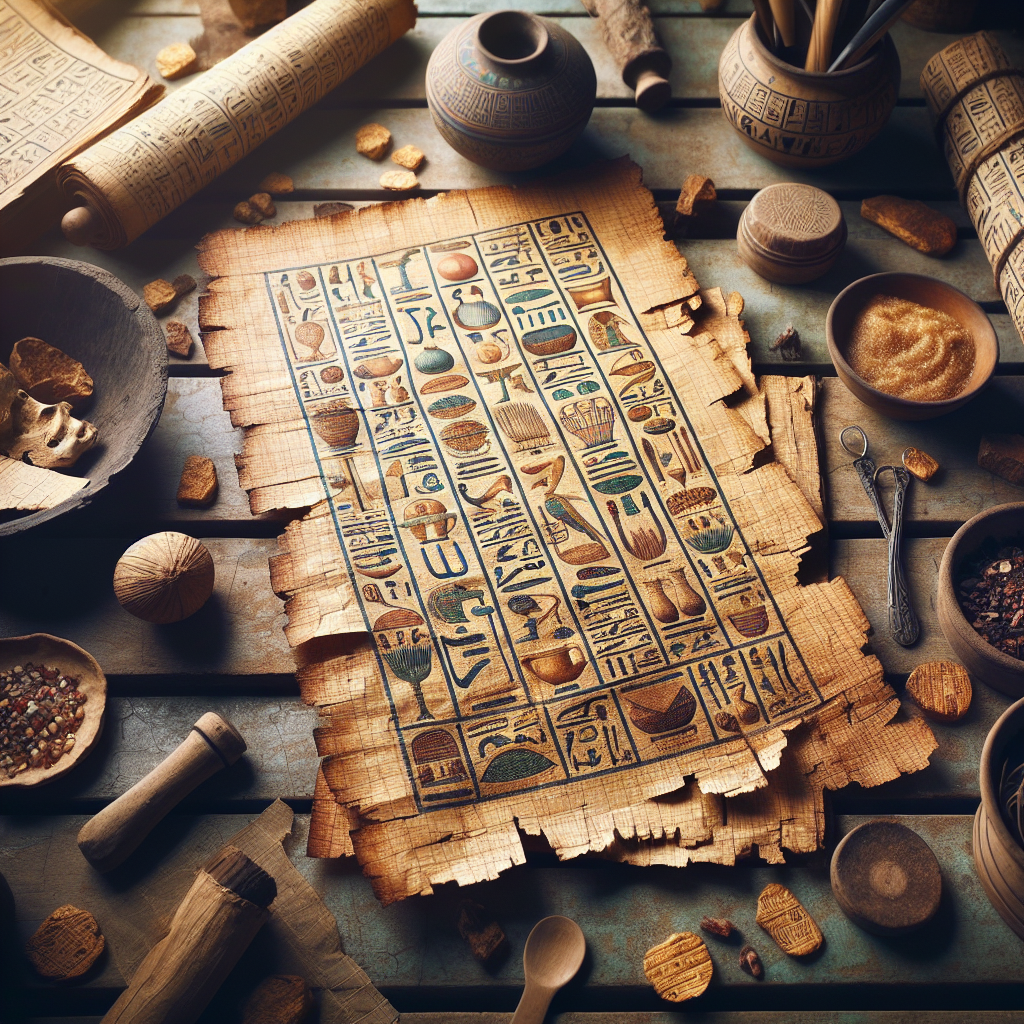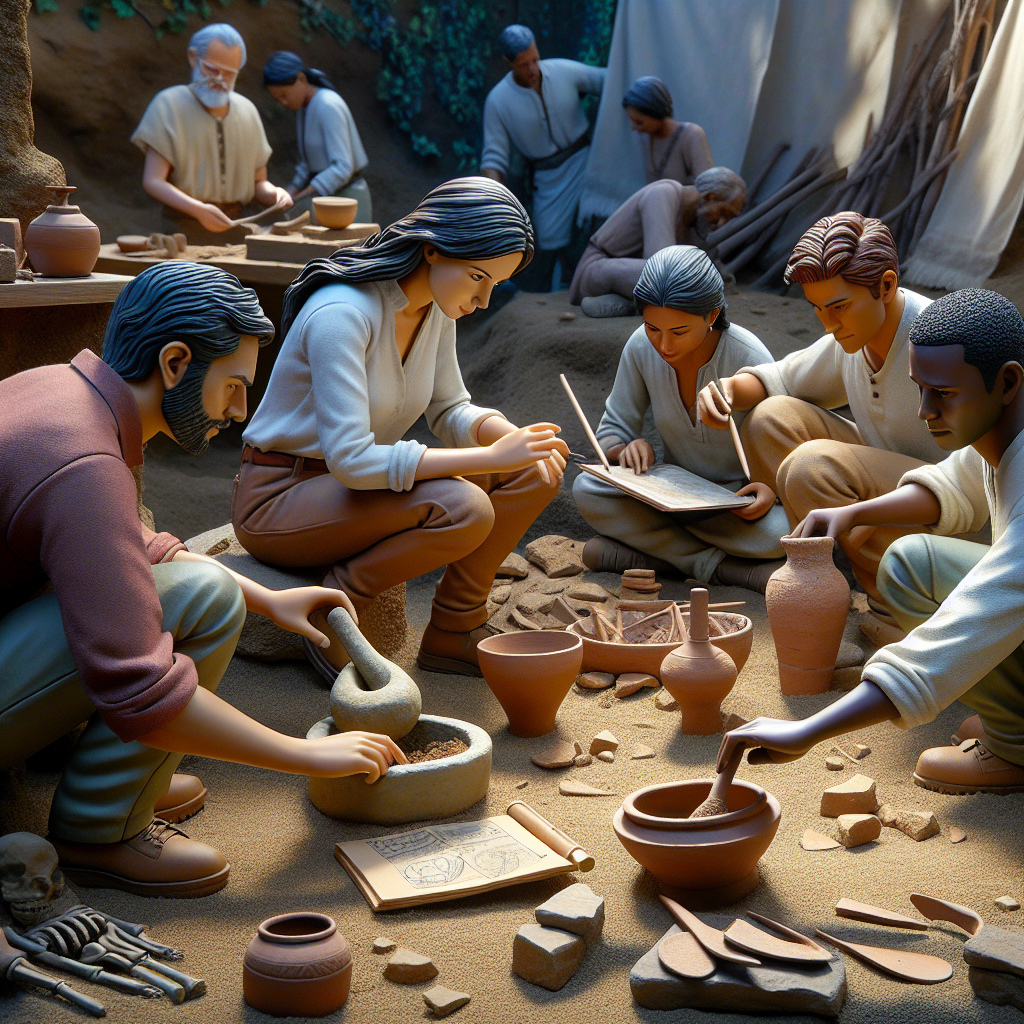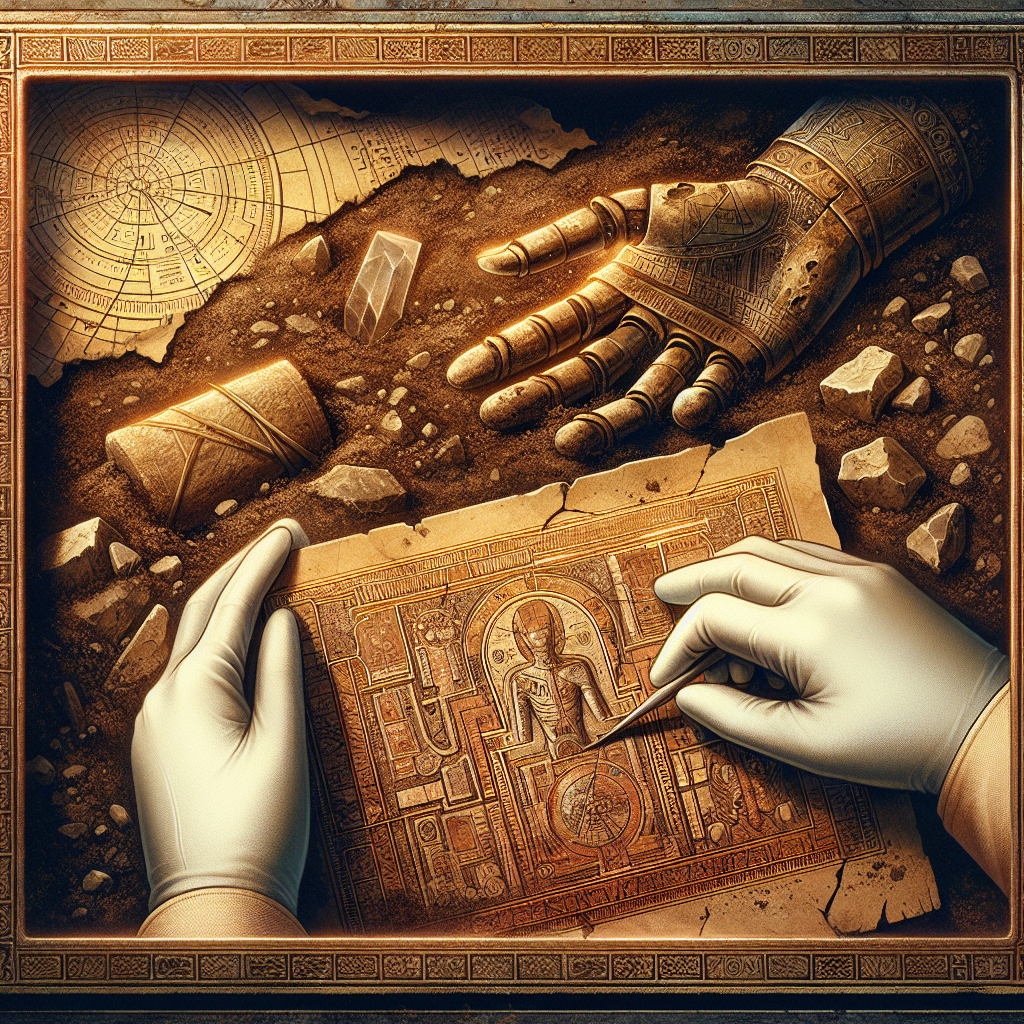Gastronomic archaeology often remains on the sidelines of textbook chronicles yet it has significant contributions in understanding our ancestors’ lives. A recent remarkable discovery unearths a new dimension of human food tradition.
Culinary Tradition
Ancient scripts detailing methods of food preparation dating back over two thousand years have been unearthed from a newly discovered tomb in Egypt. These texts not only reveal recipes but also give abundant insight into the sociocultural context of those times.
Cultural Roots
These findings remarkably establish food as a central part of celebrations and mourning rituals illustrating cultural diversity and reinforcing social hierarchies.

Modern Evolution
The uncovered techniques show astonishing parallels with modern cooking practices while also spotlighting lost knowledge that could revolutionize today’s culinary world.
Key Ingredients
The scripts detail extensive use of grains, beans, meats which are still widely used but several rare herbs and spices enumerated prompt us to rethink our current palette options.
Preparation Methods
Detailed descriptions about using sunlight for preservation and mud ovens for baking present opportunities for developing sustainable cooking practices today.

–
The shared meals were depicted as bringing communities together during hard times thereby marking collective resilience.
–
The discovery is already initiating discussions about a ‘culinary Renaissance’ sparking interest among chefs worldwide.
Expert Perspectives
Famed Historian, Dr. Li Wei opines, ‘Understanding our past dietary practices can lead us towards a healthier and more sustainable future.’
Personal Experiences
Rachel Walker, the archaeologist who made the discovery shares, ‘Unearthing these texts felt like having a conversation with our ancestors.’
Cultural Preservation
This find affirms that revisiting history could help in preserving cultural diversity in global cuisines.

